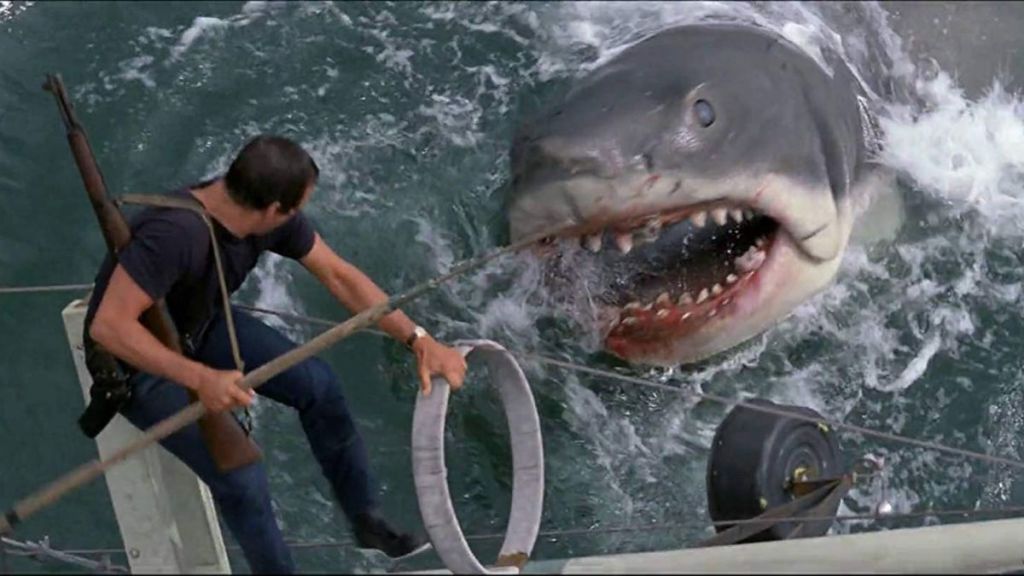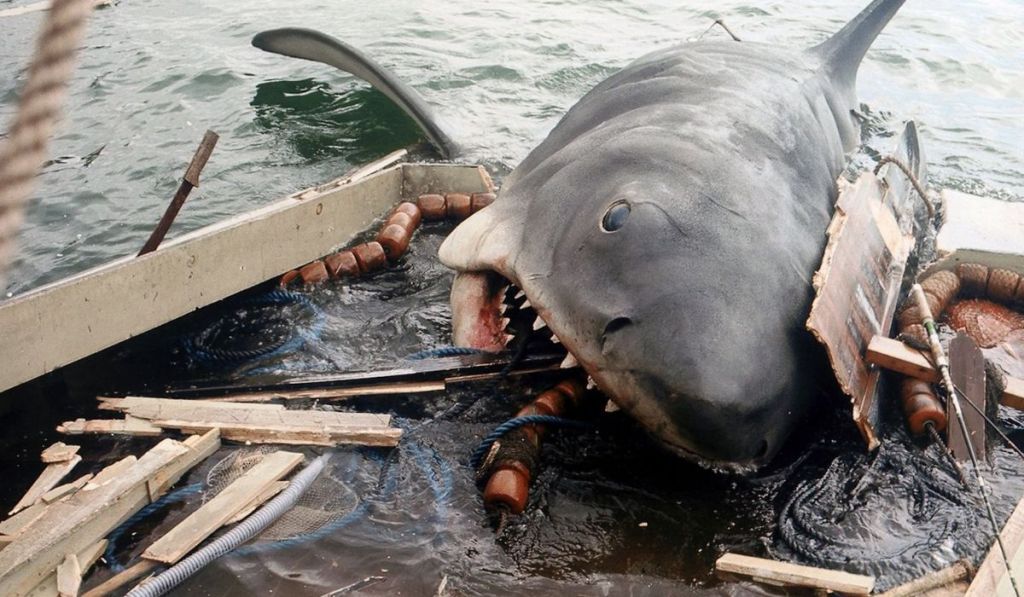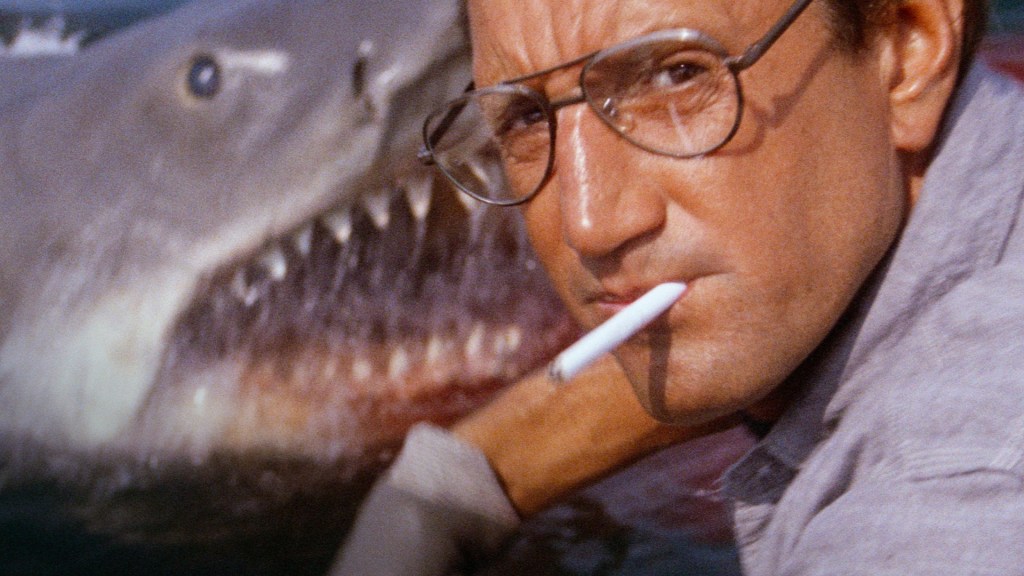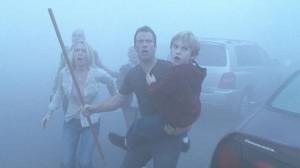Every year, we eagerly await to see what the top summer blockbusters will be, knowing they’ll create memorable experiences for years to come. That brings us to what is often considered the first summer blockbuster, Jaws. Jaws was released on June 20, 1975, and even 50 years later, this movie’s impact on the industry is still felt. It became what felt like an instant classic, pulling in over 100 million at the box office. At the time, it broke records left and right, setting a precedent for all summer movies to follow. That begs the question: how did Jaws change the industry?
Videos by ComicBook.com
Jaws is an American thriller based on Peter Benchley’s novel. Adapted by Steven Spielberg, the film weaves a terrifying tale of a great white shark and the horror it unleashed on a small New England town. It was a genre-defying film, merging thriller, horror, and monster elements into an action-packed 124 minutes. While it isn’t hard to guess that Jaws directly affected how the population viewed beaches, it also had a lingering effect on the movie industry, especially for summer blockbusters.
The Success of Jaws

Jaws was an unprecedented success, bringing in more money than was ever expected, especially for the time. People loved it, with many fans reporting that they went back to the theater for multiple viewings. This was years before Star Wars, another movie famous for its repeat audience. Looking at cold, hard numbers, it’s easy to see that Jaws was worth the money. Jaws cost a mere 9 million to make but grossed over 450 million by the time it was all said and done.
While critics were quick to point out the film’s flaws, fans fell in love. It didn’t hurt that Jaws was released simultaneously across hundreds of theaters. While that’s the standard these days, it was a groundbreaking concept at the time. Previously, films would follow a carefully regimented plan of release. The creators also hyped the film up quite a bit, creating a new form of marketing strategy. Again, another first for the industry. In a way, it makes sense that marketing would affect the bottom line of Jaws. How many of us have complained about missing a movie’s release, because the marketing failed to cross our desks?
How Jaws Changed the Industry

The success of Jaws taught the industry a few important lessons. First, the wide-release strategy worked. Second, it was clear that marketing was essential, and finally, that high-concept, high-budget, and ideally, high-profile films have a solid chance of returning on investments. In other words, the industry learned that to achieve success, it needed to create yearly spectacles.
However, this was not the only thing Jaws did differently, causing a ripple effect of changes throughout the industry. Jaws produced an unprecedented amount of merchandise. Admittedly, not all of it was legit or licensed merch, but it still taught the industry a valuable lesson. Today, it’s all but expected for a film to produce a certain amount of merch, starting with limited-edition popcorn buckets and spreading outward from there.
Jaws also caused a different sort of shift, as previously, the biggest films of the year were held back until the holiday season. However, it quickly became apparent that summertime was potentially the most lucrative time to drop larger films.
The Rise of the Summer Blockbuster

In a way, Jaws was the perfect summer storm. It was released in the summer and set in summer. The setting alone ensured that the audience would always think of war (but dangerous) beaches and days in the sun, anytime the subject came up. The next big summer blockbuster was Star Wars: Episode IV – A New Hope, which was released a mere two years later. Notably, Star Wars borrowed a few pages, such as the increased marketing strategy and leaning into the musical potential the franchise had to offer.
Since then, dozens of movies have tried to follow suit, to varying degrees of success. Jurassic Park came out in June of 1993, stealing the show and breaking new ground. The 1999 film Deep Blue Sea tried to play with the same genre, but it earned mixed reviews in the process. More recently, The Meg tried to repeat this combined success, telling a monster story set at sea. While Jaws fans hesitate to make direct comparisons, the movie grossed pretty well, especially at the box office.
The Unexpected Effects of Jaws

Jaws did more than revolutionize the summer box office, as it had a direct impact on sharks and pop culture. The summer that Jaws was released, there were reportedly fewer people at the beaches. Yes, really. Unfortunately, that isn’t all good news for sharks, as shark hunting increased after Jaws‘ release. It could be a causation/correlation problem, but most likely it is exactly what it looks like.
While many people became terrified of sharks, many more found themselves fascinated. It’s no wonder that Shark Week persisted for so long, or that there have been dozens of attempts to create shark-themed films.









